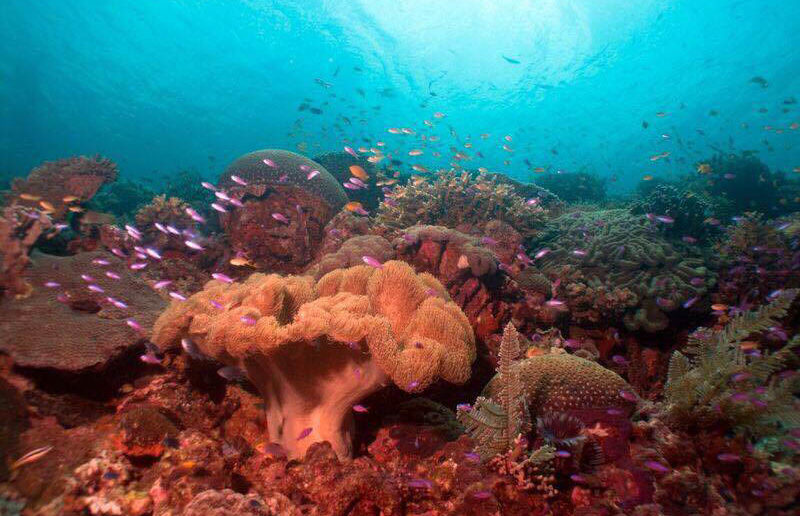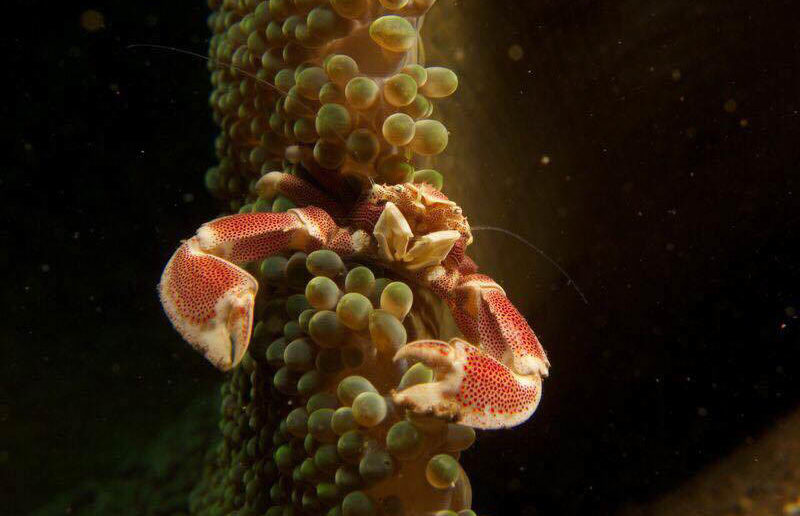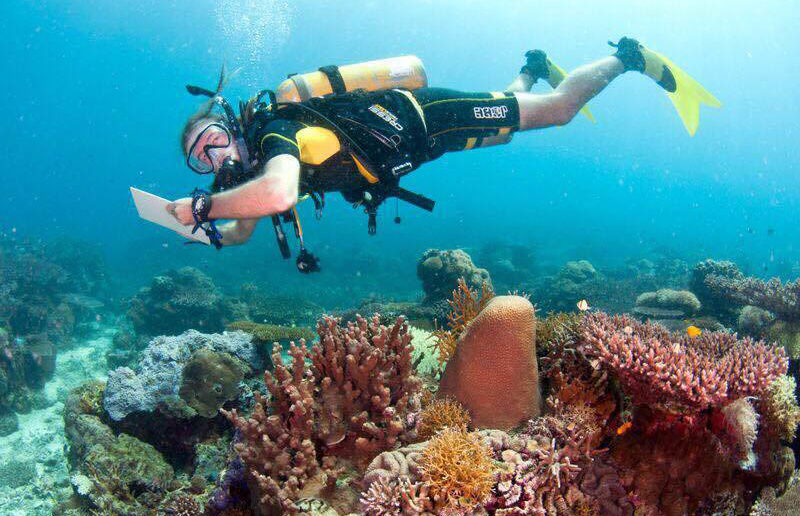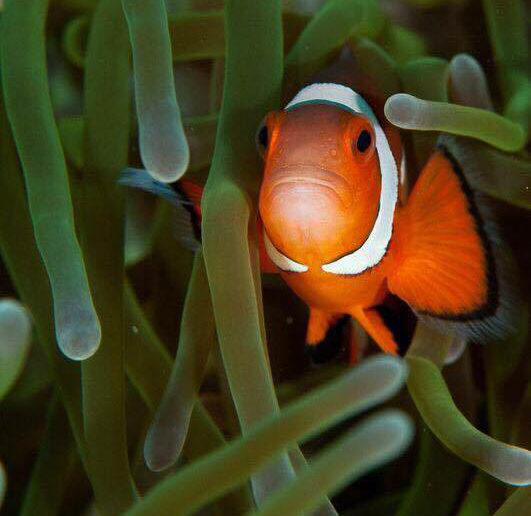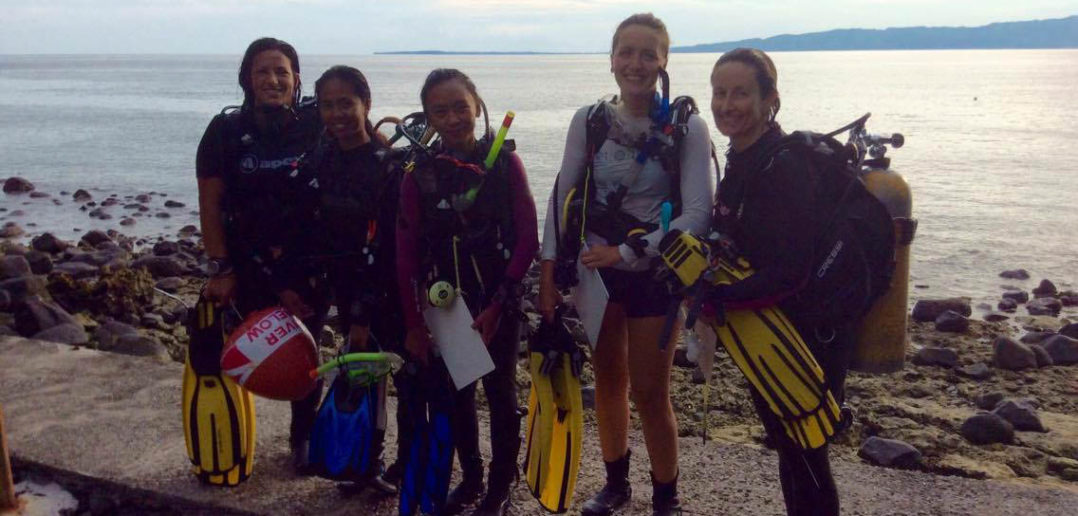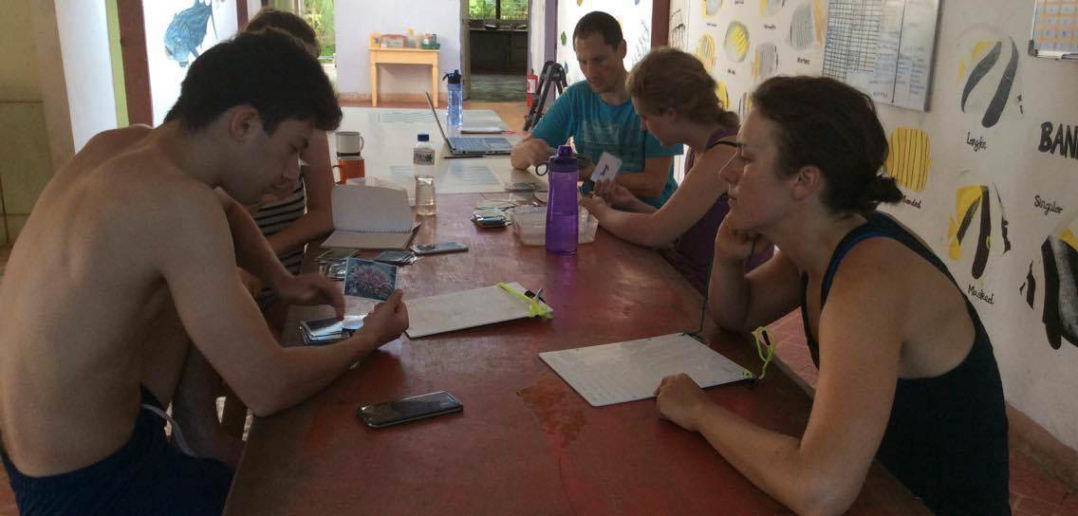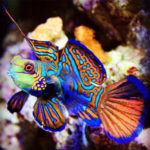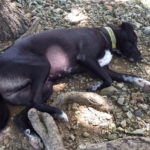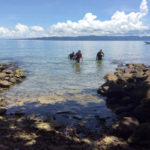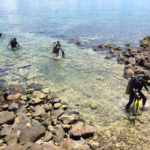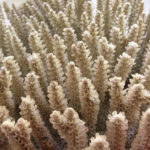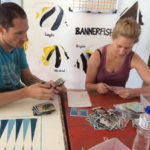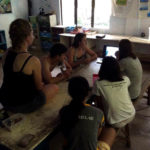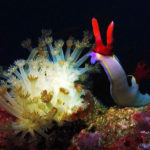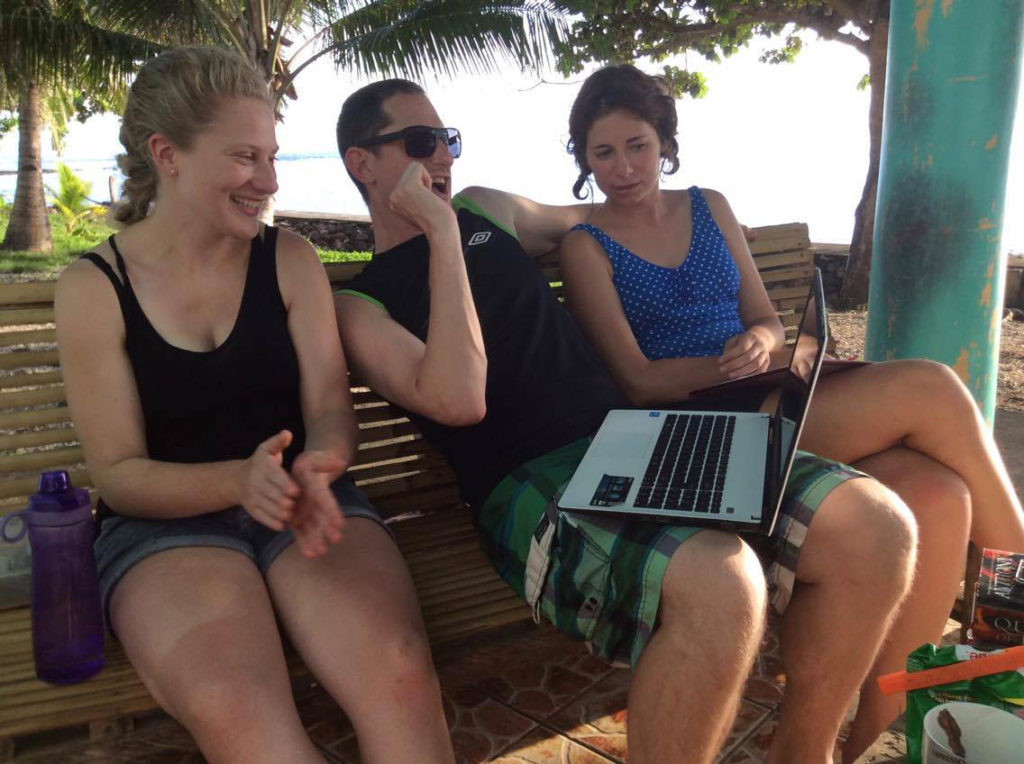Coral cay was first introduced to me by friends studying marine biology at university. Several of them were heading out to take part in projects in the Phillipines and at the time I was working in a UK dive store. I was helping to sell kit to divers on their way out to the site and so right back then the project was of great interest to me and I was delighted when the opportunity arose to visit.
Coral Cay has been operating in the Philippines since 1995 but only from their current location in southern Leyte since 2002. The project works closely with the Fillipino Reef and Rainforest Conservation Foundation Inc and the local government to monitor and survey the sites environment.
This particular site lies in the middle of the coral triangle, a region of the Indo Pacific which is notoriously known for being one of the most diverse and marine rich areas on the planet. This site offers impressive pelagic fish and astonishing macro creatures. So what is the aim? The aim is to preserve it, to protect it and to ensure that that ideology lives on.
My arrival was very well co ordinated by UK based Tessa Dawson and the onsite base manager in Napantao, Claire Ogg. Communication with ventures such as this is crucial, feeling as though you are prepared before you go and know what to expect is really important and I felt very well informed and looked after throughout the whole booking process.
The site itself, awesome! Remote and located in Napantao, a small village close to the municipal town of San Francisco and directly in front of Sogod bay and it’s marine protected area site (MPA). A fantastic location for access with enough variation to easily conduct scuba training dives as well as field research and data collection. Another great thing about this part of the world is that the water temperature ranges from 25-31 degrees all year round which provides comfortable dive conditions along with excellent visibility, a marine paradise.
Volunteers come here to not only learn to dive and get a taste of marine science but also to learn about the local culture and immerse themselves in a different community. It is vital to remember that without community support conservation is not sustainable. Coral Cay do a huge amount of work with locals in various capacities ranging from scuba training with scholarships, educational games and activities with local families and community members as well as regular beach cleans.
As I arrived at the site Dionn Hubag, a trainee Divemaster who was on a scholarship here was preparing to leave and return home. A really memorable moment was the night before he left. He said a few words about his time with the team and his training and it really was moving. He had given up his job and come here to seek a new career and developed a passion for marine science. He gave a very moving speech about his experience and it was emotional to hear him describe Coral Cay as his second family and one that would always be in his heart.
Projects can be seen by some as a threat or a body of people who have no respect for local tradition and here it was not the case. It was evident that this was a primary realisation by Coral Cay. Dionn and his experience lay testament to that and the interactions with locals and relationships built are primary to Coral Cays ethos.
Students learn in a casual environment where various AIDS are used to encourage learning. Laptop presentations, flash cards and video are just some ways in which Coral Cay present information and the classroom space for such a remote area is impressive with ample room and an extensive library.
I spoke to several staff and volunteers about their experiences here and what they thought of the work going on or how they came to be here in the first place, their motives and wether or not their hopes of the project had been met.
Dominic Revell, 36 from Suffolk in the UK said that ‘Working for Coral Cay Conservation has allowed me to satisfy my diving addiction at the same time as contibuting to important marine protection work in some of the most amazing diving spots in the world. Swapping the suits & endless meetings from my former life as a consultant in London has given me a new set of challenges and rewards. Seeing my students overcome their fears and develop into the new generation of ocean lovers and defenders never gets old.’
Gareth Turner, 38 from Milton Keynes in the UK said, ‘I met a team from CCC in Cambodia and really connected with their approach to research and community engagement. I had gained a few years of work experience within marine conservation and wanted to bring it all together with a few recognised qualifications. I signed up for CCC’s expedition management internship, high included some training in the UK first and then 6 months on site in the Philippines. The fact that CCC are working on behalf of the local Government as invited guests, creates the kind of international partnership I want to be a part of.’
So what happens here? Research by top marine scientists and also by novice marine enthusiasts. The surveys here are primarily to look at the health of the area and its biological state, all of which help to determine future environmental management decisions. These scientific assessments build the basis for education and can mean the difference between lasting conservation legacies and ultimately their failure.
Students here are taught about how to recognise and differentiate fish and corals etc through reef ecology lectures and discussions. They practice surveying MPA sites and learn how to gather data using reef check methods. There are plenty of sites to explore and other near by must dive sites include, Son-Ok marine sanctuary (home to whale sharks) in Pintuyan, Padre Bungos, Limasawa Island and Malitbog which is an area best known for its wreck diving. The variation of MPA sites here is vast and Coral Cay offer responsible marine programmes to experience it all in a productive way.
Coral Cay offer clean and tidy accomodation and a family home environment where students work together to maintain it which is great for young people as a living away from home experience. Life on site is very relaxed but a high level of safety is maintained by the on site base manager who ensures diving, including fun diving is kept well within the scope of conservative limits to ensure the safety of everyone. Students go through rigorous training and are reminded daily of health and safety procedures through extensive briefings.
This is without a doubt a fantastic location for anyone interested in diving or in marine science and is very much a gateway to working within the industry and gaining the skills and knowledge to do so.
The final word comes from Field Base Manager, Clair Ogg who says, ‘I’m really proud that our volunteers and Filipino scholars not only contribute positively to conservation and education in Southern Leyte but are also equipped with the skills and knowledge to forge their own careers in conservation, wherever it may take them.’
You can get involved with Coral Cay by visiting their website and contacting the UK office. The site offers you lots of information and questions are answered promptly by staff. Get in touch and go on the trip of a lifetime. Great people, great place, fantastic experience!





